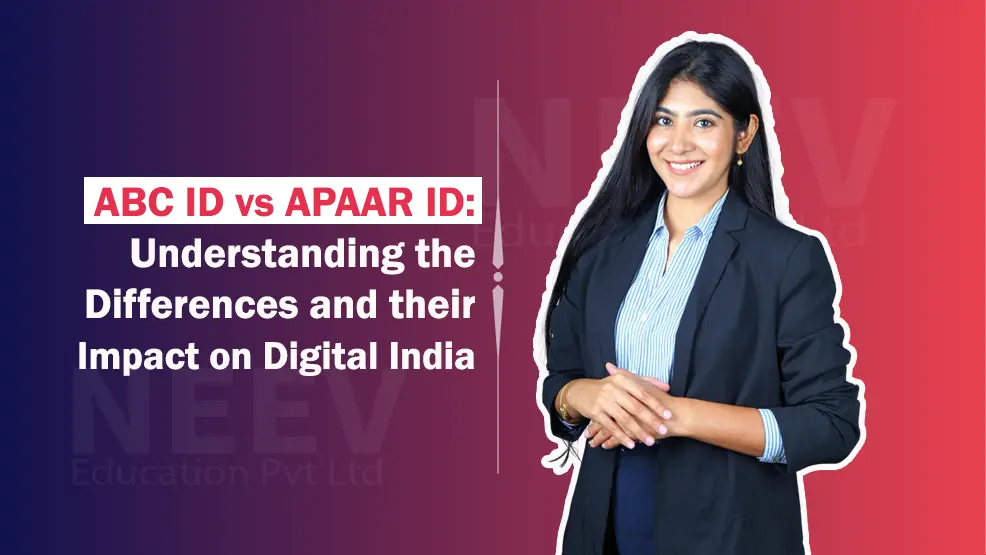




















The specialized MBA in Business Analytics and Information Technology merges IT management systems with data-driven decision-making to develop the professional skills required for modern digital market success. The course targets three primary goals, which consist of business digital transformation IT solution development, alongside data analysis. The essential concepts for this program include data analytics, cloud computing, cybersecurity, AI, and business intelligence along with fundamental topics.
Through their studies, students learn several technological approaches to advance decision-making speed while obtaining greater organizational efficiency for improved business operations. The program suits job seekers who want to work at business and tech intersections because the education prepares graduates to lead technical sectors business consulting, and IT project management roles.

Colleges
Courses
Students
Experience


An online distance MBA in business analytics and information technology provides the necessary skills related to data analysis, managing resources effectively and making informed decisions to reduce or eliminate the gap between technology and business. The course is specially designed with an efficient focus on analytics and business acumen leading to numerous career opportunities.
| Details | Information |
|---|---|
| Course Duration | 2 Years |
| Eligibility | Passed Graduation from a recognized University with 45-50% marks, 5% relaxation for Reserved Category |
| Admission Process | Merit Based or Some Universities may Conduct an Entance Test |
| Top Recruiting Companies | IBM, Accenture, Amazon, TCS, Infosys, Oracle, Google, Microsoft etc. |
| Job Positions | Analytics Consultant, Product Analyst, Business Intelligence Analyst, Software Developer, Systems Analyst, IT Specialist etc. |
|
Semester Wise Subjects Details |
Semester I
Semester II
Semester III
Semester IV
|
| Course Fee | ₹ 1,10,000 - 3,00,000 |
| Average Salary | ₹ 4.2 - 14.5 LPA |



An entrance exam is required to get successful admission in an online distance MBA in business analytics and information technology in one of the best online education colleges in India such as CAT, MAT, XAT, etc. These entrance exams are an important part of the eligibility criteria and admission process for this program in few top colleges.
The preparation is the key of success in any walk of life, similarly for an MBA in Business Analytics and Information Technology, preparation follows:

A wide range of career options is available for an MBA in business analytics and information technology who graduated from a well-reputed college in India including consultation, data analysis, business intelligence, cyber security, information technology and many more. The top career options available for MBA graduates with business analytics and information technology are- IT Consultant, Data Analyst, Business Intelligence Manager, IT Project Manager, Cybersecurity Analyst.


The future scope for MBA programs in Business Analytics and Information Technology expands significantly because businesses rely more strongly on IT-driven decision systems alongside modern technological developments. Numerous companies throughout different industry sectors actively search for specialists who can assess intricate datasets with accuracy using digital plans and lead proficient IT solution deployment. Business Analytics and Information Technology graduates become leaders who work in IT firms, fintech companies, healthcare analytics departments, and digital transformation efforts. Career stability exists in the long term because professionals need expertise in cloud computing together with artificial intelligence and cybersecurity knowledge. The field of IT consultancy along with project management positions keeps expanding throughout corporate structures and startup companies.
| Job Profile | Description | Average Salary |
|---|---|---|
| Data Analyst | Analyzes data to help businesses make informed decisions. | ₹6–9 LPA |
| Business Intelligence Analyst | Develops and manages BI solutions, dashboards, and reports. | ₹7–10 LPA |
| Software Developer | Develops software applications and solutions. | ₹5–12 LPA |
| Systems Analyst | Analyzes and improves IT systems. | ₹7–12 LPA |


The admission process for MBA in Business Analytics and Information Technology has a merit based selection process which follows as :
Login to the admission portal by using your credentials shared on registered email id or you can directly login by entering an OTP received on the registered mobile number.
The next step is filling out all the details in the application form such as personal details, educational qualification and other details as required by the University.
Upload all the scanned documents, including high school, intermediate, and Graduation Mark sheets along with the Aadhar card and ABC (Academic Bank Credits) ID.
To finish the application, submit the academic fees online through debit, credit card, Net banking, UPI or you may also opt for a finance option. Interest-free Loan options are also available in which you can pay your fees in easy EMIs.
The University will then verify your documents and send you a confirmation mail regarding your admission, along with the login credentials to access your learning management system (LMS).
The tuition fee for MBA in Business Analytics and Information Technology varies depending on the type of university and the mode. The private universities tuition fees range from INR 2,00,000 – INR 3,00,000, depending on the institution's reputation and facilities. The public universities offer affordable options with fees between INR 1,50,000 – INR 2,50,000. The online mode emerges as the best cost-effective alternatives, ranging from INR 1,00,000 – INR 3,00,000, ideal for working professionals.


The Automated Permanent Academic Account Registry (APAAR) ID is a unique student identification system designed to track a student’s educational journey from school to higher education.
| Feature | ABC ID | APAAR ID |
|---|---|---|
| Purpose | Tracks academic credits | Tracks students' entire academic journey |
| Who Can Get It? | College/university students | School/college/University students |
| Key Benefit | Helps in credit transfer & multiple entry-exit | Provides a lifelong academic record along with credit transfer |
| Linked to | UGC & Higher Education | School & College Education |
| Integration | NEP 2020, Higher Education | School Education, Government Schemes |
While the ABC ID allows higher education students to transfer credits and also allows flexible learning, an APAAR ID is a universal student identifier beyond school. These IDs are important for digital education in specific respects.
The ABC ID applies to students going for higher studies, whereby they would need flexibility in completing courses. On the other hand, the APAAR ID is about creating a continuous academic record of primary, secondary, and higher education details for easy tracking of students' academic journeys by the authorities so that they can be assisted timely when needed.
In addition, the APAAR ID serves the purpose of efficiency in resource allocation and targeted policies for educational programs of the government. In contrast, ABC ID will allow students to take interdisciplinary studies and credit-based learning freely.
The introduction of ABC ID and APAAR ID forms the fulcrum of the digital transformation of education in India. Their impact stretches across multiple domains.
These steps have simplified student access to their digital academic records.
ABC ID has been renamed as APAAR ID now, reflecting its updated identity and expanded scope. The introduction of ABC ID and APAAR ID is a game-changer in the education system of India, where students from different levels have the facility of transparency, and have ensured availability and at the same time are not restricted by the immediate time. The one-time introduction is India's Digital India movement and the National Education Policy (NEP) 2020 which is in unison with the vision, which envisages the holistic academic system of the technology-driven environment.
College students now have the leverage to independently seek flexibility, as well as the mechanisms required for multiple entry-exit, and lifelong learning via ABC ID. This paves the way for a smoother and faster progression in the pursuit of their desired education paths. At the same time, APAAR ID functions as a lifelong student identity that reduces the employment of government employees for student tracking, simplification, and also the task of establishing and maintaining an integrated academic record from school to college.
All in all, the two branding strategies of educational digitalization do the magic of reducing paper consumption, minimizing education cheating, and including all the individuals in the digital platform, where educational authorities may review their academic certificates quickly. The learning institutions have brought about a new era in their record-keeping functions and this has helped them to be more accountable to their audiences and also allowed them to be in a better position to make timely adjustments in their educational strategies based on the developments in the field of academics.
When it becomes inevitable for India to become a digital society, then students, parents, and educators have to walk hand-in-hand with the latest technologies that come with it. Not only this but also ABC ID and APAAR ID can enable a paperless induction of students, it can ensure that every educational institution can become digital and can get assistance round the clock. This digital transformation works by schools using digital cards and other digital tools with technological things such as battery life and wireless error correction. All this adds up to the global environment of the internet. India is creating a new digital economy. Get ready to experience new and better AI, enhanced global recognition, and increased data security through blockchain.
More people will become involved in educational technology. Recognize and identify with digital identity and digital citizenship, as well as the capability to borrow the same level of digital knowledge, and the ability to integrate the digital into their education systems.
Yes, ABC ID is highly advisable for all the students. It is very important in the matter of tracing academic credit, and facilitating credit transfer, as well as the better way to develop an academic record system that is student-centric.
No APAAR ID will not supersede ABC ID. APAAR ID has the purpose of differentiating the individual student but ABC ID is needed for tracking and transfer of academic credits in higher education institutions, so it is very important for students pursuing higher studies.
Suppose you lost your ABC ID or APAAR ID. In that case, you will be able to recover it by visiting the respective portals and by Aadhaar verification attached with a record of academics to reclaim it while keeping the credentials intact.
Yes, APAAR ID is available for each student from school to enable the academic performance identification of students.
Yes, ABC ID has been renamed as APAAR ID, reflecting its updated identity and expanded scope.
Currently, these IDs are intended only for use in India. However, it is dependent on future developments that could allow students to use these IDs for credit transfer or higher education opportunities internationally.
[post_image] => ABC-ID-vs-APAAR-ID.webp [post_display_order] => 0 [post_type] => 0 [status] => 2 [feature] => 0 [date_added] => 2025-04-03 18:53:35 [date_updated] => 2025-08-28 15:55:12 [button_1] => [button_2] => [button_1_url] => [pdf] => [form_text] => [form_btn_text] => [post_authors] => Admin [post_dates] => 03-04-2025 ) -->

To become eligible for admission candidates must possess a bachelor's degree and obtain at least 50% marks from a recognized university. Entrance tests and work experience might be necessary admission requirements according to specific universities.
The entrance exams for this degree program consist of CAT and MAT with XAT and CMAT among them. Several universities assess their own applicants through testing or permit student admission by demonstrating academic talent.
IT consultants and data analysts, cybersecurity analysts, business intelligence managers and IT project managers can find positions after graduation across finance, healthcare and retail industries.
College costs for MBA studies through private or public institutions and distance education programs span between INR 1,00,000 to INR 3,00,000.
Business analytics and IT present an expanding job market that needs skilled professionals in data analytics and cloud computing and AI and cybersecurity thus protecting career stability.
Best-in-class content by leading faculty and industry leaders in the form of videos, cases and projects, assignments and live sessions